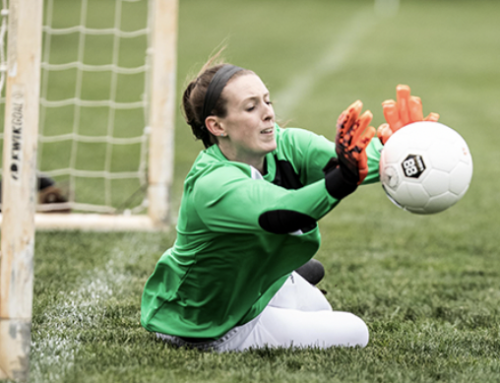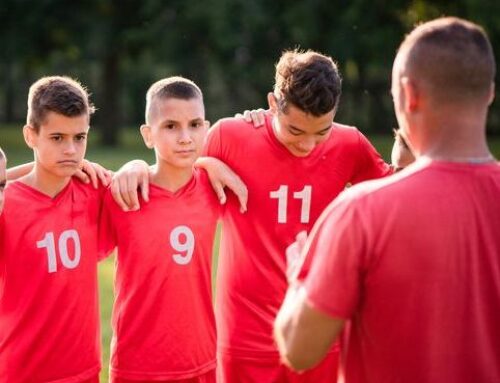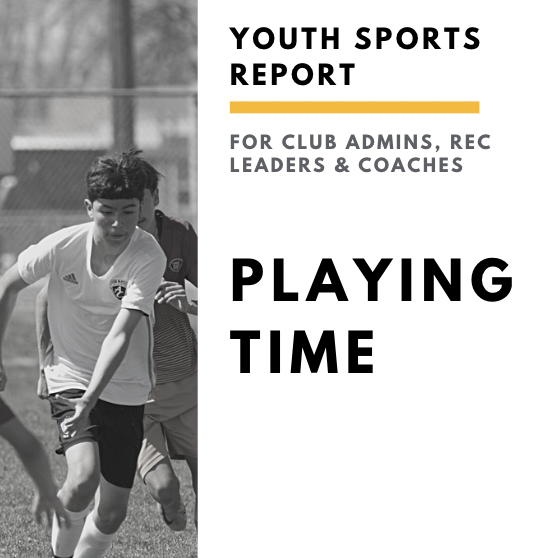Get our exclusive report. Download the iSport360 Club Switching Report Here – For Club Admins, Rec Leaders and Coaches.
Coaches Nurturing Youth Athletes’ Mental Health
Sports can be a transformative experience for young athletes, offering not just physical benefits but also valuable life lessons. One often overlooked aspect of coaching is how it can positively impact the mental health of young athletes. Coaches can play a critical role in supporting the mental well-being of their young charges.
Foster Open Communication
The foundation for supporting youth athletes’ mental health is open and empathetic communication. Coaches should create an environment where athletes feel comfortable discussing their feelings, fears, and concerns. Whether it’s pre-game jitters, school-related stress, or personal issues, encouraging athletes to talk openly can help them feel supported. As a coach, read the room, and try to use empathy to see what is going on. Foster open lines of communication with your captains. Allow them to come to you with issues and they know that there won’t be any repercussions.
Normalize Mental Health Conversations
Coaches can play a pivotal role in normalizing conversations around mental health. By discussing the importance of mental well-being openly, coaches reduce the stigma associated with mental health challenges. It helps athletes understand that seeking help for their mental health is as valid as seeking help for a physical injury. I have had players that have anxiety issues and I have worked with them. If they have an episode at practice, they know they can come to me to sit out.
Educate Athletes on Coping Strategies
Teaching young athletes coping strategies for managing stress, anxiety, and performance pressure is invaluable. Coaches can share techniques like deep breathing exercises, visualization, mindfulness, and positive self-talk to help athletes deal with the mental aspects of their sport.
Emphasize the Process Over Outcomes
Coaches can shift the focus away from winning and losing to the process and personal growth. When athletes learn that effort and growth are more important than results, they often experience less performance anxiety. This perspective shift also encourages a love for the sport itself, rather than just the pursuit of victory.
Set Realistic Expectations
Coaches should set realistic and individualized expectations for each athlete. Understanding that every athlete is unique and progresses at their own pace can reduce unnecessary stress. Coaches should emphasize progress, personal bests, and effort over unattainable standards. Support an athlete’s strengths, too often we try to get them to change but leverage the gifts they bring to the team.
Embrace Failure as a Learning Opportunity
Failure is an inevitable part of sports, and coaches can help athletes see it as an opportunity for growth rather than a setback. Encourage athletes to analyze what went wrong, learn from their mistakes, and build resilience. Emphasizing that every successful athlete has faced failures along the way can be inspiring. To foster this level of trust, you have to exhibit the behavior yourself. As a coach, I often will talk to my players about mistakes I made so they know that it is ok to communicate things.
Provide Positive Feedback and Encouragement
Positive reinforcement is a powerful tool for promoting good mental health. Coaches should offer constructive and encouraging feedback regularly. This not only boosts an athlete’s confidence but also fosters a positive relationship between the coach and athlete, which can be a source of support.
Promote Team Cohesion
A strong team bond can serve as a source of emotional support. Coaches can organize team-building activities, encourage team support, and emphasize the importance of teamwork. Athletes who feel a sense of belonging are often better equipped to cope with stress and adversity.
Identify Warning Signs
Coaches should be vigilant in identifying potential warning signs of mental health issues. These may include sudden changes in behavior, withdrawal, decreased performance, or expressions of distress. When coaches notice these signs, they should approach the athlete and offer support or connect them with appropriate resources.
Connect Athletes to Resources
Coaches aren’t mental health professionals, but they can connect athletes to the right resources. This could involve referring them to school counselors, sports psychologists, or other qualified experts who can provide specialized support.
Be a Positive Role Model
Coaches are not just teachers of sports but also role models. Demonstrating resilience, composure, and a healthy approach to challenges can be inspiring to young athletes. Coaches who show they care about their athletes’ overall well-being set a positive example.
Prioritize Balance
Coaches can help young athletes maintain a healthy balance between sports and other aspects of their lives. Encouraging athletes to excel in school, have social lives, and enjoy hobbies outside of sports can contribute to a more balanced and mentally healthy lifestyle.
Coaching youth athletes goes beyond teaching them skills and tactics. It also involves nurturing their mental well-being. Coaches who create an open, supportive, and empathetic environment, educate athletes about mental health, and provide the tools to cope with the pressures of sports, are not just building better athletes but also healthier individuals. By understanding their vital role in shaping the mental health of their young charges, coaches can be instrumental in helping athletes develop resilience and enjoy a positive sports experience that extends into all aspects of their lives.
iSport360 is the only app that does it all for youth sports. For more information on what we do, click here.
About the author:
Amy Masters is a sports mom, coach, and club administrator. She has been coaching youth sports for more than 10 years. She started Jr Lions Field Hockey, the youth recreation program for the Hunterdon County community growing it from 40 players in year 1 to 150 players by year 3. A few years later, she saw the love and competitiveness grow then started Omega Field Hockey Club serving NJ and PA players. Prior to coaching, she was a collegiate field hockey player for Lock Haven University. In her spare time (lol), she is head of marketing for iSport360, where she brings her love of sports to a bigger audience.
Learn more or request a demo of our youth sports software that is helping teams improve communication, organization and player development.
February 15, 2024






